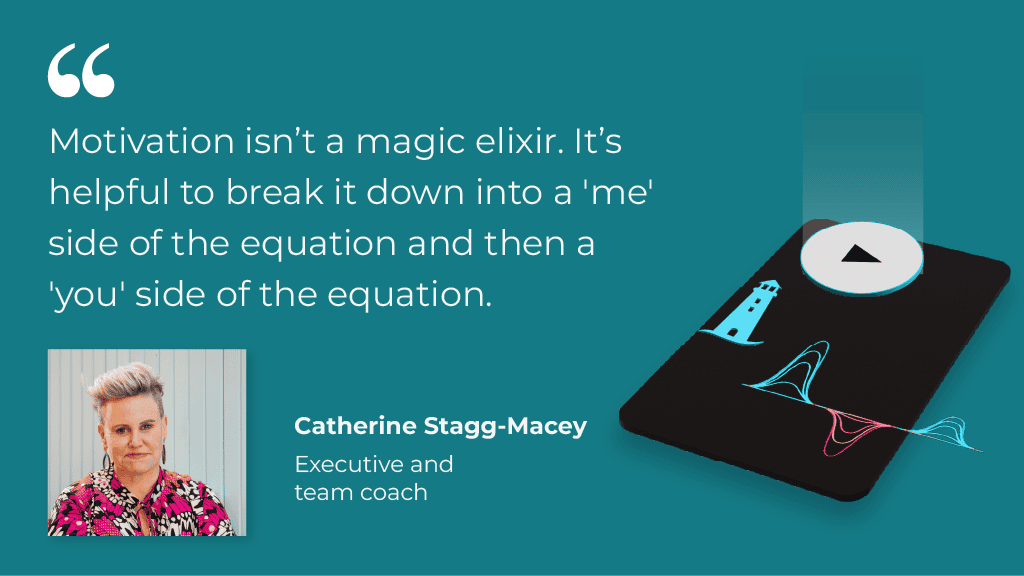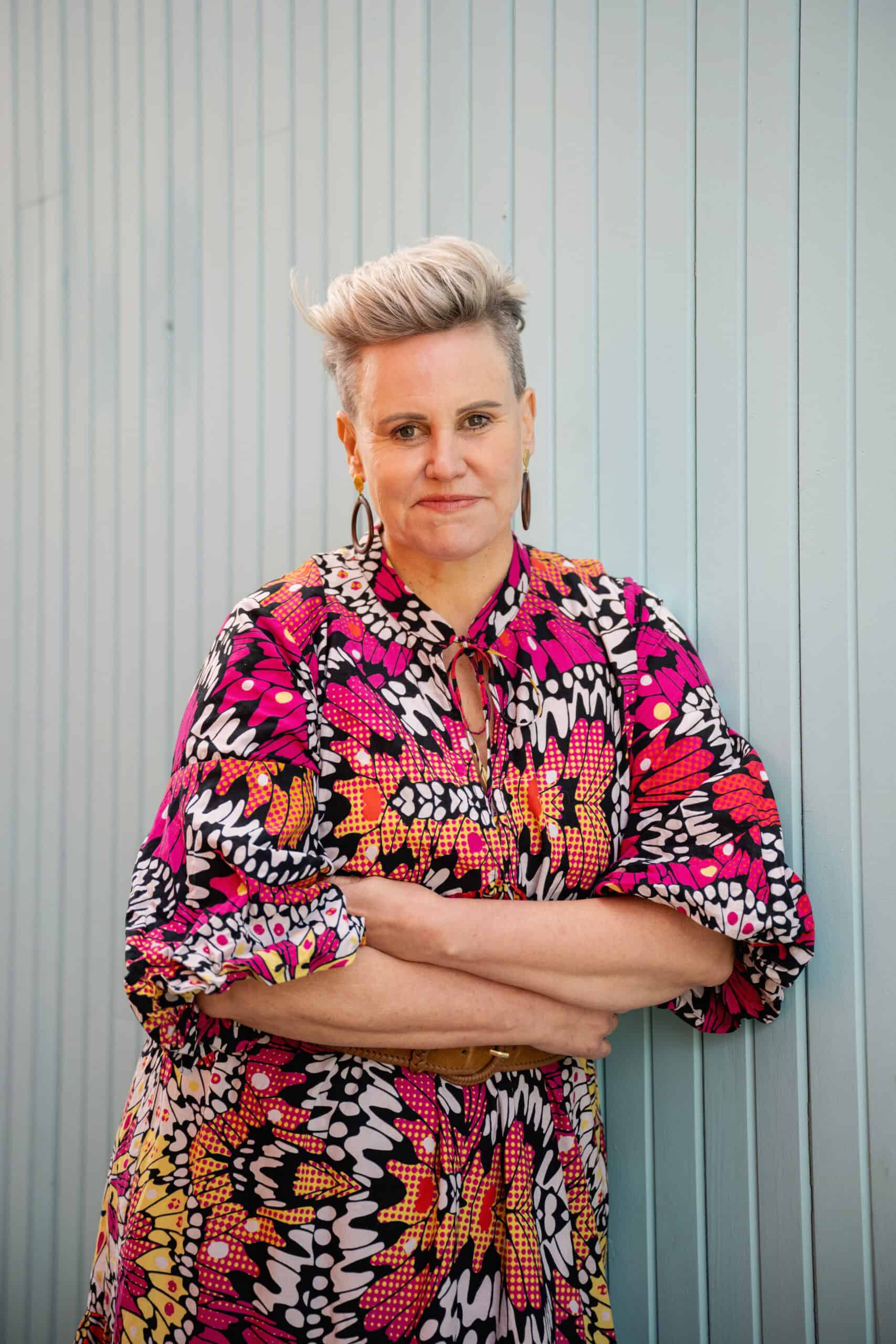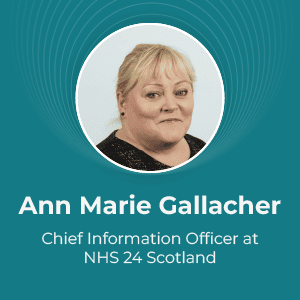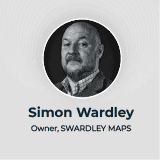
In this episode of The Digital Lighthouse, host Zoe Cunningham speaks with Catherine Stagg-Macey, executive coach, advisor, and host of the Unsaid At Work podcast. After more than 20 years in consulting and operations, Catherine has seen how traditional command-and-control leadership fails in fast-moving tech environments.
Together they explore why authenticity and vulnerability are not weaknesses but core strengths for today’s technology leaders. Catherine shares how letting go of the illusion of control, acknowledging challenges, and treating teams like adults can transform culture, build trust, and unlock better performance—even in turbulent times.
Discover
- Practical ways to co-create solutions with your team while retaining decision-making authority
- How to show vulnerability without oversharing: sharing “scars” rather than open wounds
- Why authenticity builds stronger teams and reduces the burden on leaders
- Why “motivation” isn’t something leaders can inject, but a balance of clear direction and the right people
- The difference between acknowledgement and toxic positivity
- Strategies for motivating self-driven teams without micromanagement
If you enjoyed this episode, please subscribe so you don’t miss any future episodes. We would also appreciate a few moments of your time to rate and review on Apple Podcasts and Spotify; we value all feedback from our listeners to deliver the best content and experience.
Listen here:
Watch here:
Episode Highlights:
- [6:58] Why motivation isn’t a magical exilir
- [11:15] The dangers of toxic positivity
- [14:46] The power of vulnerability and authenticity
- [22:23] Moving away from command and control leadership
About our guests

Catherine Stagg-Macey
Executive and team coach
Catherine is the trusted advisor for expert-turned-leaders who’ve outgrown doing it all themselves but haven’t yet figured out how to lead at scale. Think senior consultants turned practice leads, technical specialists moved into VP roles, or startup founders scaling beyond their scrappy early days. Her approach is to tracks multiple layers simultaneously -the patterns you can’t see, the parallels between your lifeand the gap between your proven track record and current doubts. She blends cognitive precision with relational depth, using the coaching dynamic as live data. She helps leaders recognise their unconscious decision-making strategies, shift from future-focused anxiety to present-moment clarity, and build the kind of self-trust that makes externalvalidation unnecessary.
Transcript
[0.00]
Zoe Cunningham: Hello and welcome to the Digital Lighthouse, the podcast that shines a light on the people and ideas shaping the future of digital transformation. With me, Zoe Cunningham. On the Digital Lighthouse, we explore how technology, data, and culture come together to drive innovation, scalability, and resilience in a fast moving world.
Today I’m delighted to be joined by Catherine Stagg-Macey, an executive coach and advisor who helps technical leaders break free from the scaling trap. Catherine is also the host of the Unsaid At Work podcast where she tackles the hard conversations about leadership that everyone in tech thinks, but no one says out loud.
Catherine spent over 20 years in consulting and operations before coaching, and so she’s, lived the nightmare. She knows what it’s like when your expertise becomes your prison. When being irreplaceable means that you can never step away, never delegate the important stuff, and never trust your team to make the calls that you’re paid to make.
Now she helps CTOs, engineering VPs, technical founders, and senior consultants who’ve scaled into leadership roles transform from being the bottleneck to building teams and systems that scale without them. Her clients go from working 60 plus hour weeks trying to control everything to having teams they actually trust, systems that work and the head space to think strategically instead of just putting out fires.
And that is exactly what we’re gonna be talking about in this episode when we dig into the tricky topic of motivating and aligning tech teams from how to get people to ‘hop to it’ when you make a request, to how to get them to step up and spot the things that need doing, on their own without constant monitoring.
And then we’ll look at how to achieve all of this when factors outside of your control, which could be, you know, industry contraction, could be redundancies, it could be lack of growth, when those factors mean that you’re trying to do more with less, while feeling like you have one hand tied behind your back.
So, Catherine, welcome to the Digital Lighthouse.
Catherine Stagg-Macey: Thanks for the invitation. Fun to be here.
[1:57]
Zoe Cunningham: Can we start maybe with a little bit about you? Your journey’s been from consultant to executive leader, through several of the world’s most recognised consulting brands. Can you tell us a bit about the start of your journey or this kind of section
Catherine Stagg-Macey: Well, I, I started off programming. I was VB6 back in the early nineties, but in an organisation that was largely COBOL and started off very young, leading a team. I probably was 21, 22, had a team of programmers who were all, all men in their forties, and so it was a brutal experience of how do… I mean I had no idea of leadership.
I mean, no, you know, no one had any… we had no narrative, no language. It’s just like you make them do the things that we want us to do and, and, and I think in hindsight, because I didn’t have authority by age or experience, I had to use other forms of getting people to kind of come along with me.
I mean, some of it’s charm, some of it was just trying to understand people. But, you know, brute force and loudest voice was just never gonna, it was never gonna work with ’em. And we actually worked really well as a team. So that was probably my first, my first experience.
And then through the consulting KPMG Oliver Wyman times. You’re surrounded by smart people all the time. I had to adapt my leadership style, for like being the smart person in the room doesn’t really help because there are smarter people in the room.
And so this humility, I had to learn this humility of I, I almost never know what the right answer is, but how do you create circumstances in which you can bring that out, you know, find the answer as a team and kind of co-create that answer. So I learned a certain style of leadership that worked very well for me, but more out of circumstance than because anyone taught me that.
Yeah. And it’s only through becoming a coach that I learned the language and the sort of the models and the frameworks. Like, oh, that’s what I was doing, or that’s what people that I work with do. And I think it’s a tendency of us and tech because we are paid initially to be the smart person in the room.
Right. Even more so in consulting, like you’re paid and you even know your value. ’cause you know the bill that goes out to the client, you’re like, oh, holy cow, someone pays that for me for a day. That’s mad. And so as you transition into leading a team becomes, it becomes challenging because that’s a big mindset shift from, you know, creating a space for other people to shine or, or solve problems and letting go that I don’t need to do this, I don’t need to know the answer, that it won’t be done better if I do it myself. Yeah. And that’s, yeah, that you’re, you’re laughing, you’re kind of recognise some of those patterns.
[4:43]
Zoe Cunningham: Well, it’s interesting as well, because you say ‘challenging’ and for me, I think ‘exciting’. My opinion is that right now leading in technology is one of the most exciting and rewarding places to be. Do you agree with that? And, and if so, why?
Catherine Stagg-Macey: Do I? I’m not sure I… So are you saying it’s more interesting now because of the things that are going on in the tech industry?
Zoe Cunningham: It’s, yeah. Okay. That’s fair. I mean, for me, I just, I just think, no, I think leading in technology has always been exciting.
Catherine Stagg-Macey: Yes.
Zoe Cunningham: And as things ramp up, I think it gets more, it perhaps gets more challenging and more exciting at the same time.
Catherine Stagg-Macey: I think it might depend, you know. It might depend on where you are in the tech ecosystem.
I think software engineering and and consulting is an exciting place to be. Most of us have worked very hard never to be on the QA, BAU, kind of side of the tech business. Unless that’s what you want. You know, if you want stability and consistency and a five year map of what you’re gonna be doing, you know, BAU is a fantastic place to be.
But most of the people I’ve worked with, you know, chew their right handoff, not to be in that side of the business. So I think it depend on where you, where you are. This is such a consultant response to your very reasonable question. ‘It depends’.
[6:04]
Zoe Cunningham: Well, no, it’s a good, it’s a good answer because I think that you are right. I, I love the challenge and the excitement of the new. And so perhaps this is a good time for people like me who, who do love that, and perhaps people who would like things a bit more stable and predictable. This is turbulent times, and, and we’ve gotta get some strategies in place for, yeah. How to deal with that.
So let’s, let’s move on to, to my first question, and it’s a question that comes a lot, I think, even for leaders in companies that aren’t struggling at the moment. And it’s just the basic question of motivation. As you said before, you know, your first leadership role was you had to get the team to do what management wanted or, or what needs to be done. So yeah. How, how, how would you now, with all the wisdom of all your experience, advise people asking that question?
[6:58]
Catherine Stagg-Macey: Well, the question is, you know, how do I, how do I motivate people? That, and in baked in that is in the conversations that I’ve had is some assumption that motivation’s like a vitamin C jab, that you just like you know, like some magic elixir.
And I find it helpful to break down motivation into.. There’s a ‘me’ side of the equation and then a ‘you’ side of the equation.
So me as the, as the leader manager, you as the team.
In my responsibility and my under my control is to what extent have I told you what we’re doing? Where are we going and why?
Yeah. . What, you know, what, what mountain are we heading towards and why does it matter? How do I help you understand why that matters to the organisation or our team or our future? . So, you know, if I’ve done that, if I can be honest with myself and I’ve really… And I have to push back on people.
They’re like, ‘yeah, yeah, no, I think we talked about that in the last team meeting’.
I’m like, come on. Okay. If you ‘think’ you thought, talked about it, then you haven’t done it. And they do not.
If it’s not clear to you, it’ll absolutely not be clear to them. You’ve gotta be bored saying that side of the equation.
Oh my God, I keep talking about it.
And only then can you probably expect that they’ll have a sense of what you’re, what you’re expecting. So that’s the me side.
The you side is the team like, it comes down to who, who is on your team? So if, if, if people are saying, how do I motivate people, usually underneath that, is you have the wrong team, like you want to be hiring self-motivated people who are, who are up, up for the cause, and are you who are adults and who wanna be here?
Zoe Cunningham: Yeah. And perhaps also, maybe people in the wrong place. Like we’ve all been there right, in a role where it’s just not what we wanna do and you can’t perform at the same level. When you, you don’t really wanna be there in the first place.
Catherine Stagg-Macey: Yeah. I think that’s an excellent point. And that gets back to a version of understanding your team. Is that, well, what motivates each of them individually? Like, I know I said there is, motivation isn’t an elixir, but what drives the individual?
I mean, is it. Is it status? Is it, I mean for a lot of software engineers it can be stability and certainty. And for others it can be novelty and innovation.
Zoe Cunningham: Right.
[9.10]
Catherine Stagg-Macey: So, so back to like, you know, we are a BAU team and you’ve got someone on there who just wants shiny new object stuff every week. It’s the right person in the wrong place. Yeah. But do you understand that level of detail? That level of kind of DNA and operating system for each of the folk on your team, because that, you know, that, that, that would be super helpful to understand that some people like to be part of a team.
Some people like, you know, action getting stuff done, getting lots of stuff done. Some people like status, you know, if you… One of the ways of looking at is value, you know, values exercise. You can do a values exercise with your team, or if you feel a little uncertain about doing that, you can do it from afar.
Like what, what do I think motivates that person and, and park pay and bonus and that kinda stuff because there’s a table stakes after which that that is meaningless
Zoe Cunningham: And It, and it just keeps escalating, right? The you know what, what you’re paid now becomes like the baseline and there’s always like, oh, I could be, you know, I’m doing well. What next? I could be paid more. Yes.
[10:15]
Catherine Stagg-Macey: Yeah. Where’s the next? I mean, for me, what motivates me is, is freedom. I, you know, I used to think I was a terrible employee, and a terrible direct report. But what I realised in my, with my last, boss, CEO, he gave me so much freedom. He was in the States, which was part of it, but he would be, we’d do check-ins, and he is like, how are you doing ke?
I’m like, I’m great. We’re doing smashing this. And then he’s like, fantastic. He’s like, what? What else do you need? I’m like, nothing. Like, what do you want, boss? He’s like, you just carry on. Oh, and I, I throw, so it was like I was running my own business. But I absolutely wasn’t. And that for me was freedom.
A complete autonomy freedom. I loved it. Whereas previous bosses were like, what are you doing? Weekly report. You said you were gonna do a meeting on Tuesday with Zoe. What? What did you talk about? I like, get outta my, get outta my face. Right?
Zoe Cunningham: Exactly. Yeah. Yeah. , how long was it?
Catherine Stagg-Macey: Yes. Write up what your learning points. Like bugger off. So you have someone like me in your team and you know that it’s freedom. How can you give me freedom? . And, and so that goes through,
[11:18]
Zoe Cunningham: Yeah, something that just came up there was, which is one of my favourite, I think, tools to bring to the table with leadership, is positivity.
And I think that this, that kind of includes this positive feedback that you said you were getting. It wasn’t like you weren’t getting the, I’m not interested, do whatever. That wasn’t the feedback. It was, I know what you’re doing, it’s great and I want you to have the freedom to carry on doing that. And I think for me, when I say positivity, I also include like the kind of tone or tenor when you are talking to your team. How important do you think this is?
Catherine Stagg-Macey: I think, I think there’s a there’s a lot of toxic positivity with the.. Given, you know, Instagram. Right. and I know that’s not what you mean, but I just wanna kind of call that out to mm-hmm. Unpack some of the nuance here, because I’ve also seen leaders go, you know, ‘it’s all great, it’s all great’ then two weeks later, they’re, you know, they, they make 20% of the people redundant. I’m like…
So there has to be some congruency between whatever tone, messaging, you know, if things are really going well and you’re smashing the targets, like then, you know, you know, jazz hands the whole way, in your voice and your, and your actual hands. But I think there’s a, there’s a, something else I’m hearing you say in there, which I think is worthwhile saying, there’s a… I don’t call it positivity, I call it like acknowledgement.
Zoe Cunningham: Okay. Yeah.
[12:40]
Catherine Stagg-Macey: So feedback. You know, we, we, we love to give negative feedback ’cause we falsely believe that motivates people. It doesn’t, what does motivate people is the, is the positive feedback. And it’s more nuanced than you did, you did great.
Yeah. It’s like you were so courageous when you stood up to the client and they wanted to change the scope and you held the line like, thank you. You’re like, yeah, yeah, I did that. Yeah. There’s a real specificity in the quality that I was displaying, which is, which is courage. And there’s some great research coming from relationship.. The science of being in relationships.
The Gottman’s do some fantastic research. They’ve been doing it for like 40 years at working at why some marriages work and others don’t. And it’s completely transferable to teams. And one of the tenants that is transferable is this idea of a positive bank account. So in a relationship, for every negative thing you say to your partner, you need to say five positive things to keep it in balance.
One to five. That’s a huge ratio. And when, when relationships start getting in trouble, you’ll find that balance is really outta whack. It’s like five cri critiques to one positive. But that’s the same with the, with the team. We are just human beings in a relationship, in, in a team relationship. and so as a leader, I think there’s a.. You know, you could see that as one of your, one of your tasks as a leader is to keep that positive bank account up by doing very specific, you know, quality, calling out positive qualities of the human, of the person in that context.
[14:15]
Zoe Cunningham: Yeah. I mean, I feel like there’s so much to talk about in all of these topics, right? And and I find it rewarding to talk about because they’re so valuable, like taking the weight off yourself by helping your team perform better. I think that’s like magic. It’s, you know, it’s magic that you go from, we’re all happier. Rather than, I think sometimes you worry as a leader that you’ll get happier at the cost of making your team less happy. Mm-hmm. but I don’t think it has to work, work that way.
Catherine Stagg-Macey: No. It’s a win-win. Yeah. Yeah. It’s a win-win for sure.
Zoe Cunningham: Yeah. Yeah, exactly. Yeah. And it’s something that you just mentioned about being congruent between, what you’re saying. And what’s actually going on. So like it’s not okay to say the company’s doing brilliantly. We’re doing the best we can. And then like you say, next week announce you are, you are laying off half the team.
So all of these things we are trying to implement. And I know for me, like my leadership career has been like, learn a new technique, try and implement it, learn something else, you know?
We are doing it to try and persuade people to behave in a certain way. At the end of the day, we’ve got our objectives. So I’ve had this question for a long time about like, how does authenticity fit into this scenario? Or my summary version is like, is it good leadership to show that I’m in control of everything and I’ve thought of everything? Or is it authentic to like confess that really I’m a hot mess on the inside?
[15:53]
Catherine Stagg-Macey: There’s so much to unpack in that… I think anyone who thinks they are in control is lying to themselves. And I, and I say that as a control freak, like for someone who, who has deep trust and control issues their whole life.
The, the, the longer I was in leadership, the more I realised like, I, have some influence. I have no control over anything. And I find that quite freeing because you’re sending yourself to a, to a false end if you think you can control things.
. I think authenticity and vulnerability go together, as, as sort of traits. I always say share the, the wounds, not the scars. So, you know, if, if your life is a hot mess, like you’re going through a divorce or something horrible like that. It is probably not the time to share the de the details of that. I mean, I think it’s, I think it’s reasonable. Your team will know something’s up. So, yeah. And however you, well, you think you’re keeping your personal life at home and your work life at work, you’re lying. You’re lying, you know, it’s, it’s not happening. We all, we’ve all been on the receiving end of a boss who thinks that, you know, they’re navigating that, that line.
So I think, yeah, you can, I mean, you life, you could say something like, ‘life’s tough at home. Just bear with me’. And then in six months time you could talk about the, you know, the terrible, the, the terrible if you wanted to, the terrible things that were going on.
Because I think when, when we share the, the wounds, it gets very messy. ’cause we don’t have the story yet. We don’t have, you know, we’re in, we’re in the process. You know, a year later when you’ve been through that and you’ve got some… you’ve got a story that you’ve created. I don’t mean a story as in a lie.
I mean, you’ve made sense of it. You know, my, my father passed away 20 years ago. he died by suicide and for years, I, I didn’t share the story ’cause I didn’t know how to tell the story. But I tell the story now because it is a, it’s a story. It’s shaped who I’ve become. It shaped some of the, some of the choices I made to go into coaching.
You know, a very troubled man who, who thought he didn’t, he didn’t or couldn’t work through his demons. And for me it’s untenable that someone who, that I to, to, to know that another people wouldn’t work through their demons and it would take that, that path. Yeah. Not, not to sidetrack our conversation, but there, there’s a, there’s an example of like something really difficult and challenging and I was an absolute hot mess for several years after that.
But now I tell the story because it has a shape, it has a meaning, and I can. I can bring it into the conversation because it serves a purpose. You know, that’s personal mess. But I suppose you are also, you’re also referring to organisational mess, right?
[18:27]
Zoe Cunningham: There’s so much mess isn’t there everywhere?
Catherine Stagg-Macey: There’s… and I’ve had conversations with, with founders saying, you know, we’ve got three months left of cash. Do we tell the staff that?
Zoe Cunningham: Right
Catherine Stagg-Macey: Like, I have not been a founder. I have coached founders, but I have not been a founder. But my sense is always… Why don’t we treat people like adults? And I think there’s a case to be made of like, look, there’s three months cash left. This is what we need to do to prove, to get the next round of funding or whatever it is. Like who’s in?
You know, it’s the Dunkirk, you know, Churchill speech. Like, this is a crisis, this is everyone’s role in the crisis. Do you wanna come along? And most people are like, hell yeah. Like, you know, there’s the mountain, let’s do it crack on!
Whereas if, again, you’re back to this. If you, if just to take, stay with this example, if you’re down to three months, I mean, the founders would be stressed as anything. Like they won’t be sleeping, they’ll be feeling ill, they’ll be ratchety in meetings and everyone’s like, what the hell’s wrong with them?
Zoe Cunningham: Exactly. Yeah.
[19:33]
Catherine Stagg-Macey: You know, and then they make a story. . Oh, did I, did I mess up? And you. So I don’t, I don’t show up as my best self ’cause I think my boss is angry with me.
And come on, put it on the table and treat each other as adults. And if people aren’t behaving like adults, then that’s on you. Like sort the team out.
Zoe Cunningham: Yeah, yeah, yeah. I like this. We’ve come into, naturally, we’ve come into these kind of challenging times. When things are aren’t, you know, and this kind of pattern that it can be easy to get into with the good times of pay rises every year for everyone and growth. So there’s like title, status to give out as well. You know, there’s all, and leadership roles and all these kind of things. And when that’s gone, how do we have those hard conversations?
So I think, you know, what you’re saying is we have to share with the team for them to be able to meet us where we are and help us where we need to be. So how do we approach those kind of conversations?
Catherine Stagg-Macey: So the hard, hard conversations is sort of sharing the current reality. I think it’s always about intention and it’s true for any hard conversation, whether it’s a feedback conversation or like, you know, organisationally we are in a bit of a pickle.
It’s like, what am I, what am I trying to achieve by this conversation? So if, you know, if the organisation’s in a pickle and they want the team to come along with me in some difficult changes, we’re gonna have to make. You know what story do I need to tell them to come along with that? And I, when I say story, I mean storytelling in, in the purest sense. I don’t mean like…
Zoe Cunningham: Like a narrative.
[21:07]
Catherine Stagg-Macey: A narrative, yeah. I don’t mean, yeah. lies, made up stories. It, it always starts with like in any difficult conversations, what do I, what do I want as the outcome? And that, and that for me is a. Is a line in the sand or, or a flag in the sand of a general direction of travel, because if you’re two, two humans in a room, that that conversation can go anywhere.
And there may be emotions and people may say something that you’re completely not expecting, but you go like, well, what was my intention? My, my intention was for you to feel part of a future but it might be a bit hard to get there. So what do I now need to say because you just told me something else. You know, how do I, how do I find my way back on course to that?
Because then we can over prepare in a hard conversation. We can over, we can have like, well, I’ll say this, and then they’ll say that and, and, and, you know, within 30 seconds you’re like completely…. they didn’t get the script! They’re in a different script.
So that sense of, you know, that North Star, like where am I heading in this conversation? You can, I think if, for people who’ve done this to me, like this is what I wanna have the conversation, I want you to feel. I want you feel excited about the, the times that are gonna lie ahead of us, like. Okay. I, that’s, you know, that’s the headline of this conversation. Let’s have that conversation, you know?
[22:23]
Zoe Cunningham: Yeah. And I, I really like what you say about intention, that there’s actually a difference between saying, I respect you as a member of my team, and I want you to know what’s going on so that you can form your own assessment of how that, how you fit into that, and where you wanna go and how you wanna help, rather than, I’m gonna spin you a line so that you work hard so that I can get what I want right there. You could say even the same words probably, and it would be a different message.
Catherine Stagg-Macey: Yeah. I think we need to really get away from this command control form of leadership, which is what I grew up in South Africa, like I know that place well and it’s exhausting.
Like I tried that as a leader. Being command, command control. It is absolutely exhausting. It’s much more fun and more, more rewarding as the leader to kind of co-create with your team, not abdicate your responsibilities. You have responsibilities and there’s some things you can’t share, and yes, yes, yes.
But you don’t have to do this all on your own. I said this to a team, Chief Revenue Officer the other day, he was gonna reorganise his team, and I said to him, I had to call him out. I’m like, you’re, you’re reorganising the whole team on your own. He’s like, oh, yeah, I am. 20 people.
You’ve got like some superstars in that team. Why don’t you take ’em aside and go, this is what I was thinking. Why do you, you know, gather data from the system, right? Mm-hmm. You do not. And it’s like you could just see a shoulders like, oh God, yeah, okay. That feels a lot easier than me having to get it right first time in version one. That has to be the perfect org structure.
So I think a lot of us, you know, and I can laugh, I can laugh with him ’cause I do the same thing. I always have to think because again, back to the smart person. Who has to think they have to do, you know who I should know how to do this? I should know how to do an org structure, right? I should know the perfect plan through chaotic, economic times.
[24:08]
Zoe Cunningham: They’ll think I’m weak. Yes, they’ll think I’m incapable. You know, can’t even do a simple org chart.
Catherine Stagg-Macey: The decision is ultimately yours. So yes, you might consult in an org chart or you might consult or or speak to the team about the road forward, but then you have to make the decision. And that’s, that’s that what, that’s what makes you the leader with the big bucks and everyone else the team member. Yeah.
Zoe Cunningham: And on that, I feel like we’re just starting. I feel like we’re just starting the conversation, Catherine. So thank you so much. You’re welcome. Thank you for joining me on the Digital Lighthouse, always, and, sharing your thoughts. we’ll share details in the podcast notes about if people wanna get in touch with you further.
I know that I get Catherine’s newsletter and I really enjoy it. So thank you, Catherine. Thank you everyone for listening. And see you next time!



